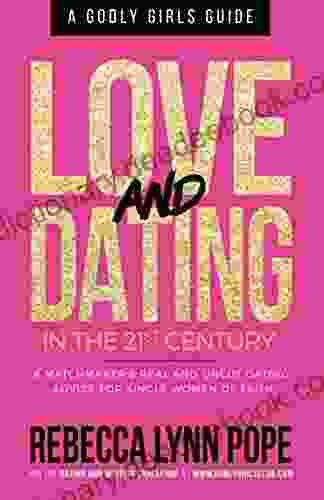Using Equity Audits To Create Equitable And Excellent Schools

In the pursuit of educational excellence, equity stands as an indispensable cornerstone. Ensuring that all students have access to the same opportunities for success, regardless of their background or circumstances, is not merely an ethical imperative but also a fundamental step towards creating a more just and equitable society.
4.6 out of 5
| Language | : | English |
| File size | : | 1890 KB |
| Text-to-Speech | : | Enabled |
| Screen Reader | : | Supported |
| Enhanced typesetting | : | Enabled |
| Word Wise | : | Enabled |
| Print length | : | 154 pages |
Equity audits serve as a powerful tool in this transformative journey, empowering schools to critically examine their policies, practices, and outcomes through the lens of equity. By conducting a thorough audit, schools can identify and address systemic barriers that hinder equitable access and outcomes, ultimately paving the way towards a more inclusive and supportive learning environment for all students.
What is an Equity Audit?
An equity audit is a comprehensive review of a school's policies, practices, and outcomes to identify and address systemic barriers that perpetuate inequity. It involves gathering and analyzing data, interviewing stakeholders, and conducting observations to assess how the school's systems and structures impact students from different backgrounds.
Equity audits are distinct from traditional school improvement efforts in that they focus specifically on identifying and addressing inequities. They go beyond examining student achievement data to explore the root causes of disparities, considering factors such as race, socioeconomic status, gender, language, and disability.
Why Conduct an Equity Audit?
Equity audits offer a multitude of benefits for schools, including:
- Identifying and addressing systemic barriers: Equity audits uncover hidden biases and structural inequalities that may be hindering student success.
- Informing decision-making: The data and insights gathered through an equity audit provide a solid foundation for developing targeted interventions and policies that promote equity.
- Creating a more inclusive and welcoming school environment: By addressing inequities, equity audits foster a sense of belonging and empowerment for all students, regardless of their background.
- Improving student outcomes: By removing barriers and creating a more equitable learning environment, equity audits ultimately lead to improved academic and social outcomes for all students.
Components of an Equity Audit
A comprehensive equity audit typically includes the following components:
- Data collection: Gathering data from multiple sources, including student achievement data, demographic data, and school policies.
- Stakeholder interviews: Conducting interviews with students, parents, teachers, administrators, and community members to gather their perspectives on equity.
- Observation: Observing classrooms, school events, and interactions between students and staff to identify potential inequities.
- Analysis: Analyzing the collected data to identify patterns, trends, and areas for improvement.
- Report: Developing a written report that summarizes the findings of the audit and provides recommendations for addressing inequities.
Implementing an Equity Audit
Implementing an equity audit requires a collaborative effort from school leaders, teachers, staff, parents, and the community. The following steps can guide the process:
- Establish a leadership team: Create a team of stakeholders to oversee the equity audit process and ensure its success.
- Develop a plan: Outline the scope, timeline, and budget for the equity audit, and identify the data sources and stakeholders to be involved.
- Gather data: Collect data from multiple sources to provide a comprehensive understanding of the school's equity profile.
- Analyze the data: Identify patterns, trends, and areas for improvement in terms of equity.
- Develop recommendations: Based on the analysis, develop specific and actionable recommendations to address the identified inequities.
- Implement the recommendations: Prioritize and implement the recommendations to create a more equitable and inclusive school environment.
- Monitor and evaluate: Regularly monitor the implementation of the recommendations and evaluate their impact on equity.
Equity audits are essential tools for schools committed to creating equitable and excellent learning environments for all students. By identifying and addressing systemic barriers, promoting inclusive practices, and empowering stakeholders to work together, equity audits pave the way for a more just and equitable educational system. Embracing the principles of equity in education is not only a moral imperative but also an investment in the future of our society, ensuring that all students have the opportunity to reach their full potential and contribute to a more just and prosperous world.
4.6 out of 5
| Language | : | English |
| File size | : | 1890 KB |
| Text-to-Speech | : | Enabled |
| Screen Reader | : | Supported |
| Enhanced typesetting | : | Enabled |
| Word Wise | : | Enabled |
| Print length | : | 154 pages |
Do you want to contribute by writing guest posts on this blog?
Please contact us and send us a resume of previous articles that you have written.
 Novel
Novel Page
Page Chapter
Chapter Text
Text Library
Library Paperback
Paperback Magazine
Magazine Newspaper
Newspaper Paragraph
Paragraph Sentence
Sentence Shelf
Shelf Glossary
Glossary Foreword
Foreword Preface
Preface Annotation
Annotation Manuscript
Manuscript Scroll
Scroll Codex
Codex Library card
Library card Biography
Biography Encyclopedia
Encyclopedia Dictionary
Dictionary Character
Character Librarian
Librarian Borrowing
Borrowing Stacks
Stacks Archives
Archives Research
Research Lending
Lending Reserve
Reserve Journals
Journals Reading Room
Reading Room Interlibrary
Interlibrary Literacy
Literacy Study Group
Study Group Thesis
Thesis Awards
Awards Book Club
Book Club Theory
Theory Textbooks
Textbooks Joseph H Low Iii
Joseph H Low Iii Jennifer Ann Bailey
Jennifer Ann Bailey Robert L Harris
Robert L Harris Claudy Conn
Claudy Conn Kevin Killian
Kevin Killian Gayden Wren
Gayden Wren Ravindra Nayak
Ravindra Nayak Ree Drummond
Ree Drummond Hans Offringa
Hans Offringa Paul Jay Hill
Paul Jay Hill Hal Borland
Hal Borland Andrew James
Andrew James Kishema Malik
Kishema Malik Vernon Lee
Vernon Lee Tom Mazorlig
Tom Mazorlig John F Kinnear
John F Kinnear Roger L Coakes
Roger L Coakes Alex Wilmerding
Alex Wilmerding Isla Chiu
Isla Chiu Devon A Mihesuah
Devon A Mihesuah
Light bulbAdvertise smarter! Our strategic ad space ensures maximum exposure. Reserve your spot today!

 Rodney ParkerExclusive Interview with Master Builder: Paul Doherty of Stance Auto Magazine...
Rodney ParkerExclusive Interview with Master Builder: Paul Doherty of Stance Auto Magazine...
 Earl WilliamsUnveiling the Enchanting Realm of CGP KS2 Geography: An Ideal Companion for...
Earl WilliamsUnveiling the Enchanting Realm of CGP KS2 Geography: An Ideal Companion for... Oscar WildeRock Music Trivia from the 1980s: Test Your Knowledge of the Hair Bands, Glam...
Oscar WildeRock Music Trivia from the 1980s: Test Your Knowledge of the Hair Bands, Glam... Gerald BellFollow ·19.1k
Gerald BellFollow ·19.1k Esteban CoxFollow ·9.1k
Esteban CoxFollow ·9.1k Orson Scott CardFollow ·13.4k
Orson Scott CardFollow ·13.4k Marvin HayesFollow ·6.7k
Marvin HayesFollow ·6.7k David BaldacciFollow ·3.7k
David BaldacciFollow ·3.7k Sam CarterFollow ·6.8k
Sam CarterFollow ·6.8k Nikolai GogolFollow ·10.6k
Nikolai GogolFollow ·10.6k Samuel BeckettFollow ·16.4k
Samuel BeckettFollow ·16.4k

 Jerome Powell
Jerome PowellBarbara Randle: More Crazy Quilting With Attitude -...
A Trailblazing Pioneer in...

 Jan Mitchell
Jan MitchellLapax: A Dystopian Novel by Juan Villalba Explores the...
In the realm of dystopian literature, Juan...

 Rodney Parker
Rodney ParkerOur Mr. Wrenn: The Romantic Adventures of a Gentle Man
Our Mr. Wrenn is a 1937 novel...
4.6 out of 5
| Language | : | English |
| File size | : | 1890 KB |
| Text-to-Speech | : | Enabled |
| Screen Reader | : | Supported |
| Enhanced typesetting | : | Enabled |
| Word Wise | : | Enabled |
| Print length | : | 154 pages |











